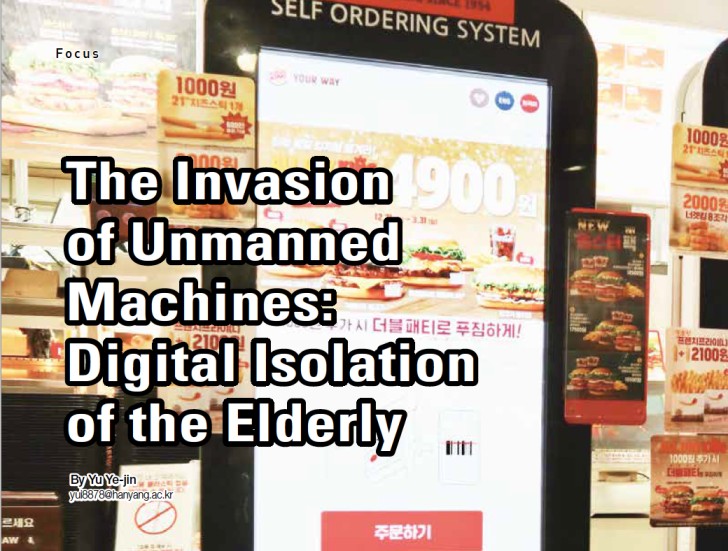
The world is evolving as customers do not need to converse with the employees when they are going to banks nor when ordering food. They would rather do the same task with an unmanned system, or a kiosk machine. Yet this convenience is apprehensible mainly for the younger generations, while the elderly are unfamiliar with rapidly developing electronic devices and unable to use unmanned system services. Before, when customers entered fast food restaurants, the employees welcomed them. However, nowadays, a kiosk machine, which is an unattended self-service booth with a touchscreen, provides information or makes sales instead.
As orders and payments are done electronically without the store workers’ contribution, it is beneficial in that it reduces personnel and operation costs and accelerates the work process at the same time. However, such kiosks initially installed to provide convenience to the customers have made the elderly feel uncomfortable. Ms. Kim, who is 83 years old, visited a fast food restaurant and said: “I stopped by this store to have a hamburger for the first time in a long time, and the clerk told me to use the kiosk machine instead of directly ordering from them. However, I had no idea how to use it, so the clerk had to help me order.” She also added: “Young adults are comfortable with these types of machines, however old people like me mostly face difficulty while using them. The letters are too small to read and I always feel pressured to order quickly for those waiting in line.”
Senior citizens feel flustered by this change. They suffer inconvenience while ordering hamburgers through an unmanned system at the fast food store. In order to prevent digital alienation of the elderly from changes being brought to the quality of life, society must help them not to lag behind in this technological progress.

